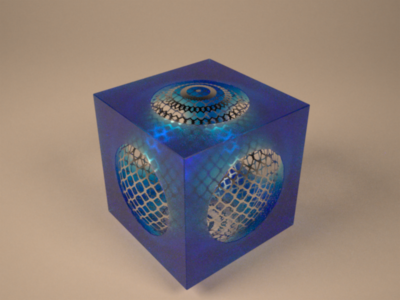Render this: SSS
-
Hey guys, let's do some SSS tests (subsurface scattering)
Here is the definition.
Subsurface scattering (or SSS) is a mechanism of light transport in which light penetrates the surface of a translucent object, is scattered by interacting with the material, and exits the surface at a different point. The light will generally penetrate the surface and be reflected a number of times at irregular angles inside the material, before passing back out of the material at an angle other than the angle it would reflect at had it reflected directly off the surface. Subsurface scattering is important in 3D computer graphics, being necessary for the realistic rendering of materials such as marble, skin, and milk.
Attached is a crude model, but one that would be great for such a test.
Feel free to use any material in order to show your SSS.
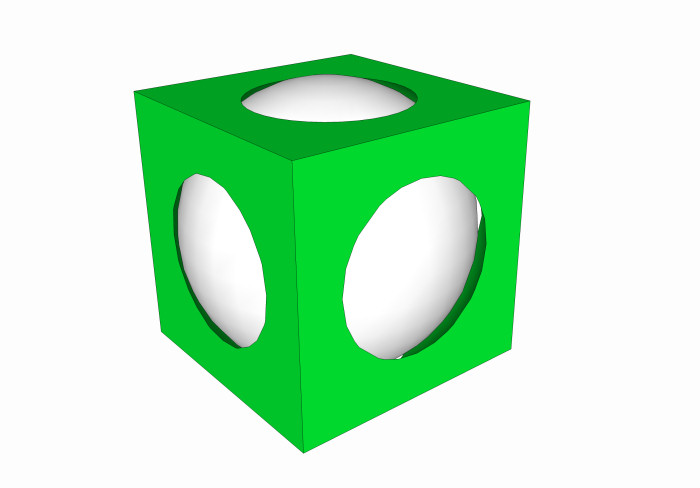
-
Got an indigo version cooking as we speak

-
I suspect the unbiased engines are gonna rock big time.
However that does not stop me from trying with a biased Vue.
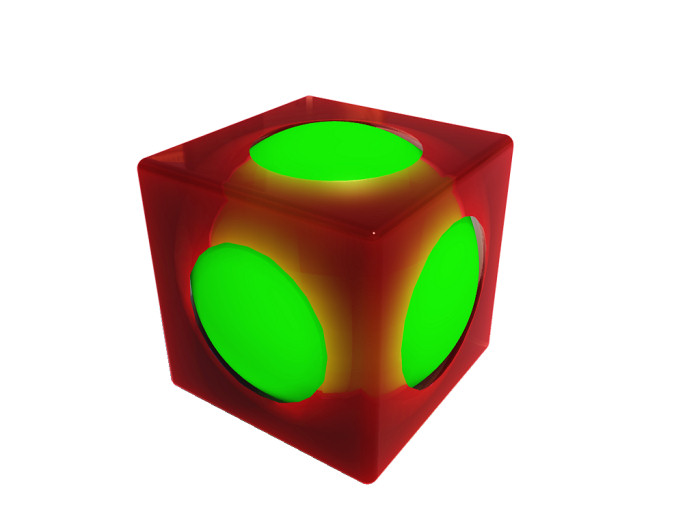
-
-
This is fun...
This time I used an alien type material with displacement and SSS and a chrome sphere inside, I used a HDR image for lighting and reflection.
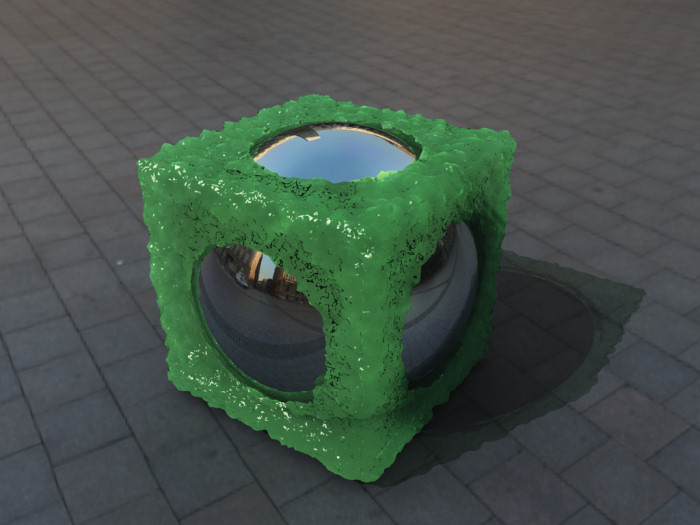
-
A blue rubber material:
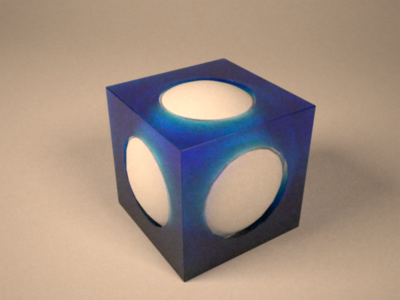
-
Great one remus, like I said, the unbiased engine are best at this.
Here is one with a glowing center.
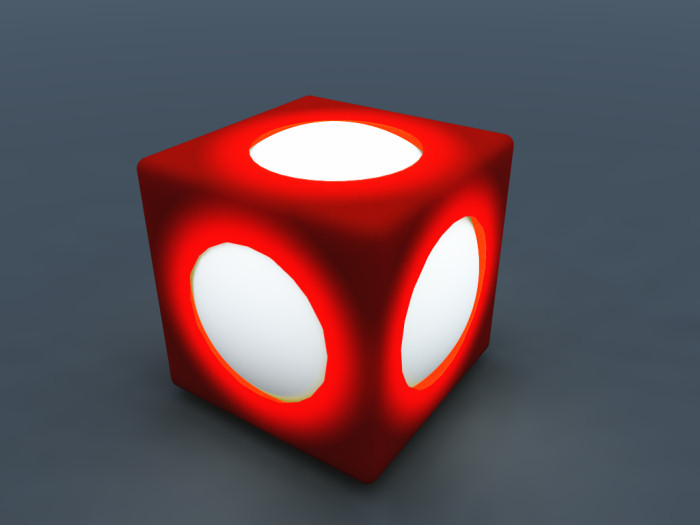
-
I like this one.
Ice.
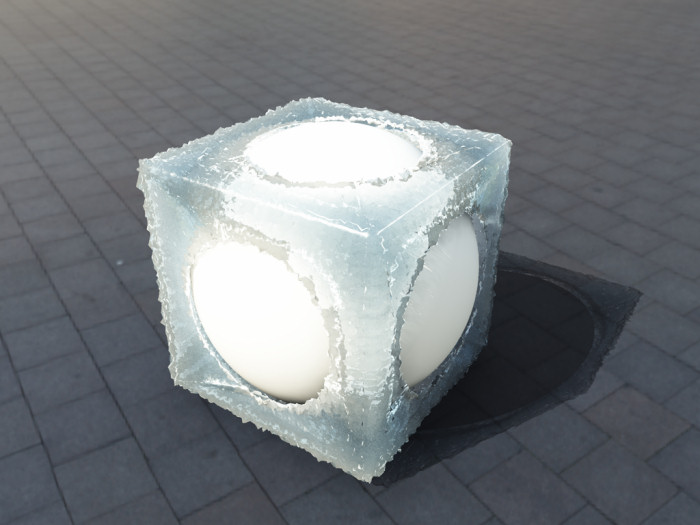
-
Great idea, I was wondering how to achive realistic flesh using sss, what render engines are you guys using, V-ray I assume?
-
great topic! i'll give it a go tomorrow. remus that looks very nice indeed. thanks for sharing your lighting setup and everything solo, we all learn from it!
 looks like an alien jelly bean surprise!
looks like an alien jelly bean surprise!raduteo....pete is using vue and remus is using indigo while i'll be using twilight.
-
hi SOlo - I'm running away from this as fast as my wee legs can carry me!!!!



PS - those renders are amazing guys
-
-
Just a very quick test with Maxwell 2.0 Standard SSS Honey material for the box and a concentric steel for the ball with physical sky.
-Brodie
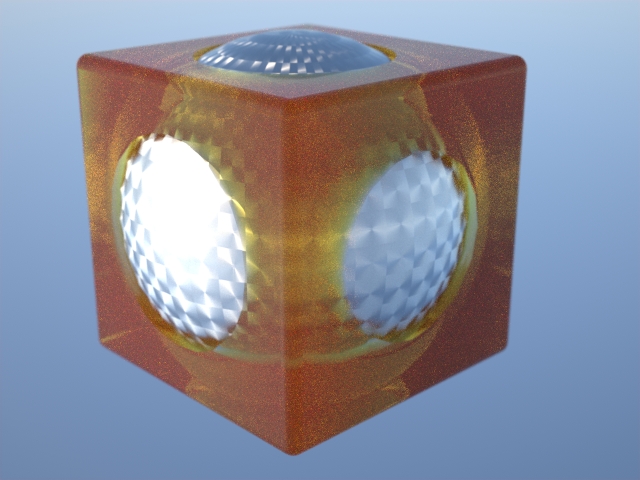
-
I like translucent materials.
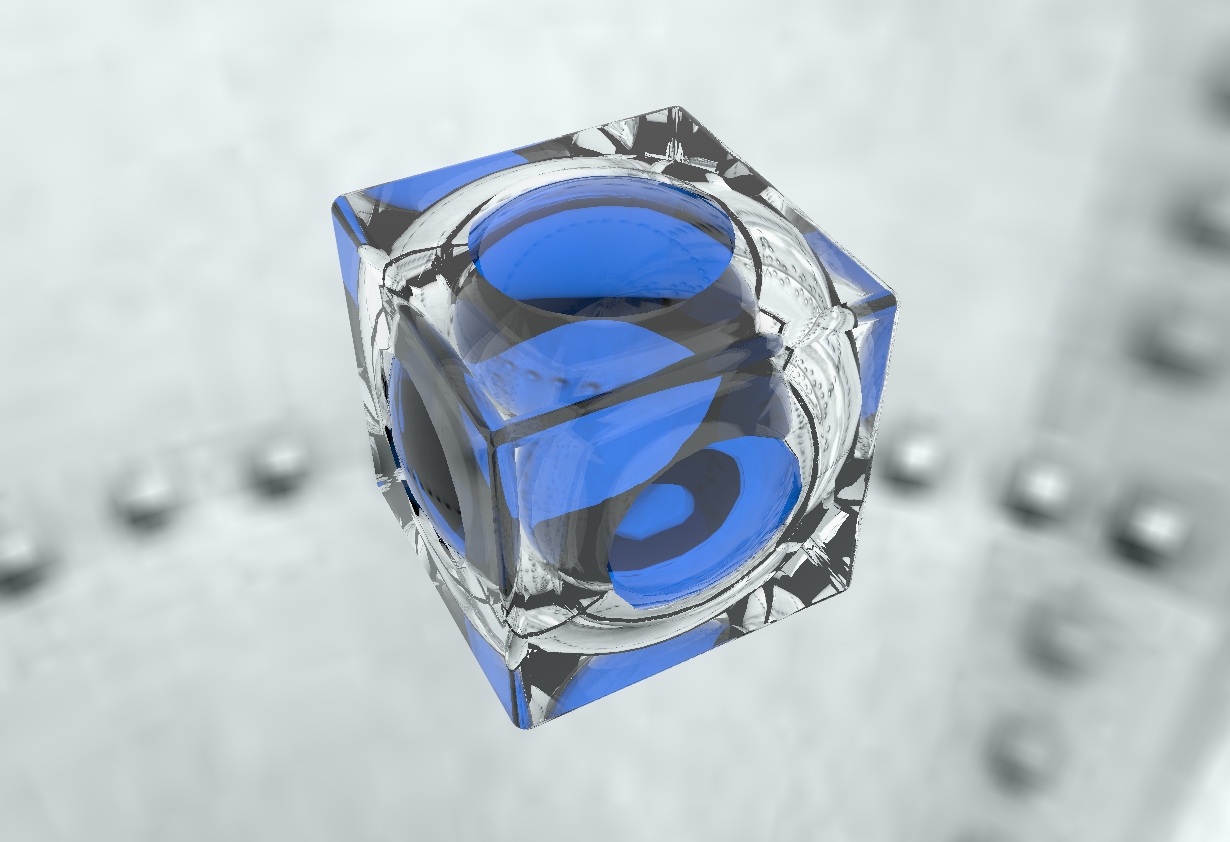
-
Guys these are looking great, I encourage everyone to try, and feel free to ask if you need help.
This one is a beach ball inside some sort of plastic material
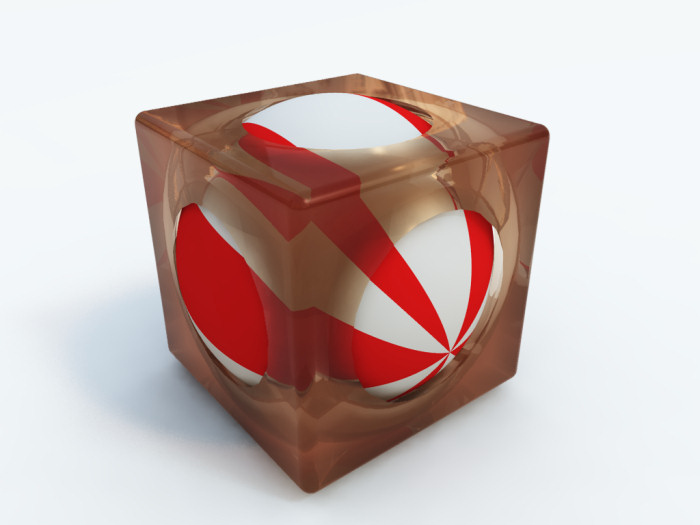
-
Tropical Frog inside alien snake.
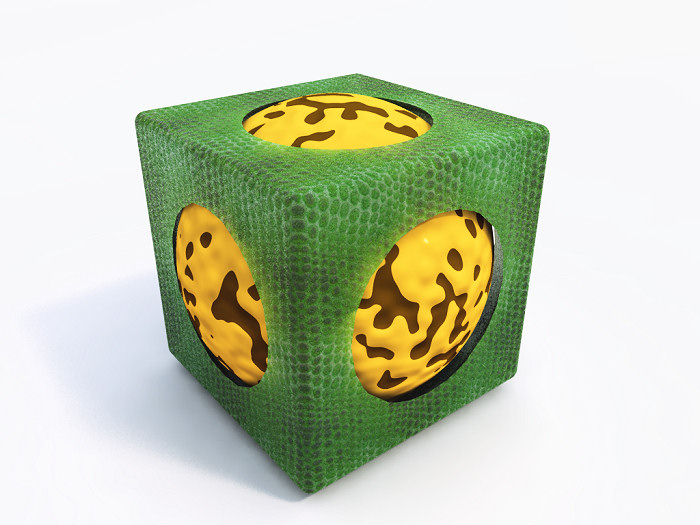
-
Here is yet another called...
Volcano in frosted glass
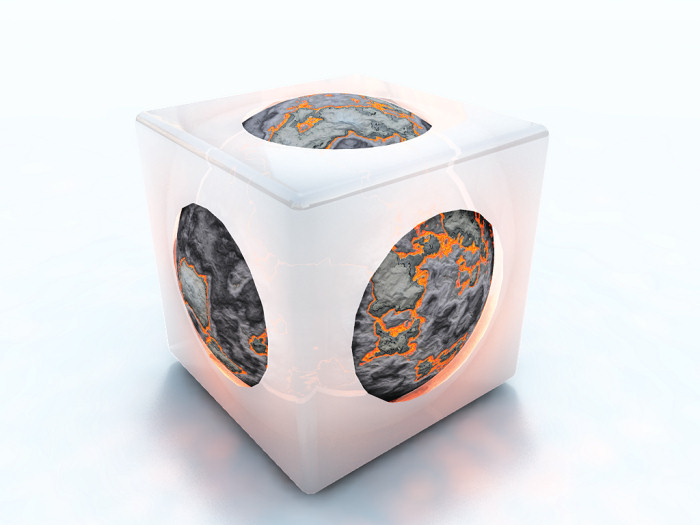
And I'm not sure what this is but a great paper weight it would make.
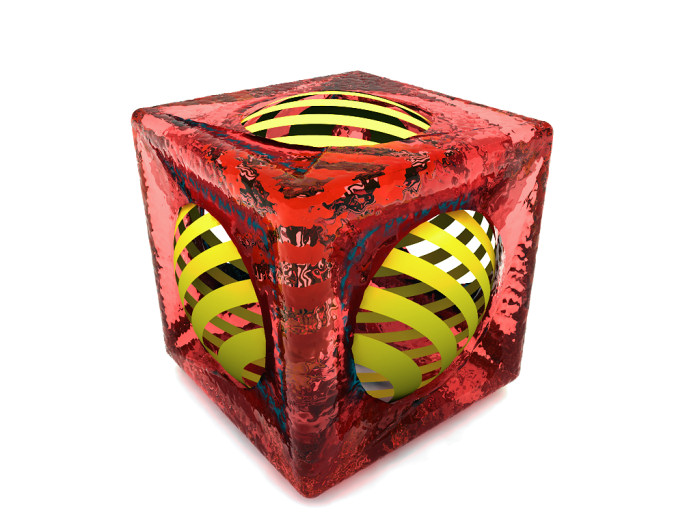
-
cool, where did you get the volcano?
-
It's a texture, a Vue texture.
-
You might have a future in this kinda thing (ha!)
great job and a fun learning tool.
thanks solo!
Advertisement
